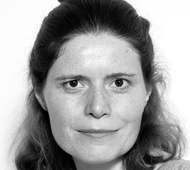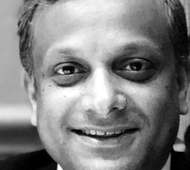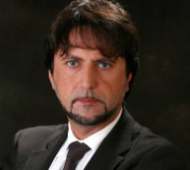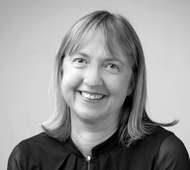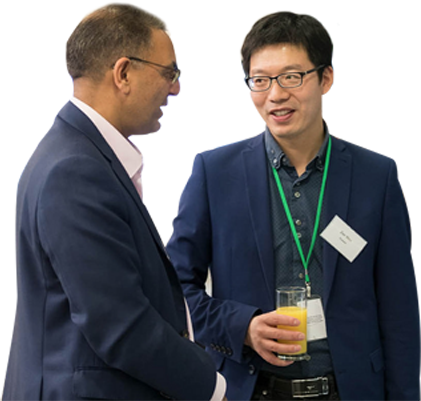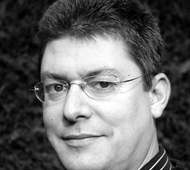
Simon joined Real Wireless in January 2016 as Chief Technology Officer, taking overall technical and innovation strategy responsibility across the company. He is a member of the UK5G AB, co-chair of the International WG, and member of the Climate WG. His long-standing association with the UK innovation eco-system through roles such as Director of mVCE and the Innovate-UK ICT-KTN brings a wealth of practical knowledge on open innovation to accelerate product and services delivery. Simon spent his formative years in telecoms infrastructure systems and product development. In NEC Corporation he played a key role in the formation of Joint Ventures for development of 3G and 4G products and established a core team that developed the first-generation of technology for 4G systems culminating in a Steering Board position in the LTE SAE Trials Initiative (LSTI). In recent times he has directed projects on future cities, the application 5G and IoT in industry verticals with an event horizon towards 2030. His long participation in Common Public Radio Interface (CPRI) and then directing Real Wireless engagement in H2020 and the 2016 NIC study on Future Comms infrastructure brings great foresight on a range of architectural evolutions underway in 5G architectures, in particular for Open RAN and Diversification. He is a CW Small Cell SIG Champion, and in February 2022 the Small Cell Forum (SCF) appointed Simon as their Chief Strategy Officer, drawing on 25 years direct industry experience and work as an advisor to governments, regulators and big business.

Caroline has been engaged in technology analysis, research and consulting for 30 years and since 2002, has been focused entirely on mobile and wireless. As co-founder and research director of Rethink Technology Research, Caroline has developed a significant research base and forecast methodology, based around deep contacts with mobile and converged operators round the world. This addresses critical issues and trends in mobile and wireless infrastructure, and particularly operator deployment intentions for 4G, 5G, small cells, Cloud-RAN and other technologies. She is also a senior contributor to Analysys Mason’s Next Generation Wireless research programme. She has led research and consulting projects with a wide range of clients, including mobile infrastructure vendors, large and start-up operators, regulators, trade bodies, government agencies and financial institutions. Her advice and forecasts have helped inform strategic decisions at a wide range of vendors, operators, start-ups and finance houses. Prior to setting up Rethink, Caroline held various executive positions at VNU Business Publishing BV, then Europe’s largest producer of technology related B2B reports and publications. She was the European content and research director, and was a member of the leadership team for VNU’s online business. She holds an MA from the University of Oxford.
Vicky Messer - VP Product Management, Picocom
Vicky Messer is VP of Product Management at Picocom with over 25 years of experience in the wireless industry. Vicky joined Picocom over 4 years ago and leads Product Management, Technical Marketing and partnership activities. Vicky also leads the Picocom Small Cell Forum (SCF) activities and joined the board member at Small Cell Forum (SCF). In recognition leading in multiple work items and a published papers, Vicky was awarded the SCF ‘Outstanding Individual Contribution to SCF award’ in 2020.
Vicky is a certified IET registration mentor, and currently mentors a local young female engineer. In May 2023 Vicky joined Industrial Advisory Board Bath University Electronics and Electrical Engineering and also won a SCF Industry Award 2023 for Women in Wireless.
Neil Piercy - Founder, Independent
Neil has been developing base stations for various communications systems for over 30 years, during which time he has performed roles throughout the whole development lifecycle, as well as management roles. Neil joined the small cell specialist company, ip.access, when it was formed as a spin-off from TTP Com back in 2000, and stayed with the company for 23 years, during which time his roles varied from System Architect through to Head of Engineering. As a Systems Engineer covering software, hardware, and RF, he includes specialist areas such as security and networking, as well as a focus on all aspects of protocol design and implementation. He has analysed system performance and performed simulations across GSM, UMTS, LTE and NR small cell RAN equipment and systems. He is now a freelance telecoms Systems Engineering consultant.
Prof. Simon Saunders is an independent advisor and researcher with deep industry and academic background in communication systems technology and a burgeoning interest in the intersection between real and artificial neural systems, communication systems and music. He is a Visiting Professor at King’s College London, telecoms advisor to DCMS and Trustee of the charity Music for All.
Simon is a specialist in the technology of wireless communications, with a technical and commercial background derived from senior appointments in both industry (including Google, Motorola and Philips), academia (University of Surrey, Trinity College Dublin) and regulation (Ofcom).
He founded the Small Cell Forum and chaired this industry association from 2007-12, growing membership to 150 companies and working with 3GPP to create the first standards for small cells. He acted as Director of Emerging & Online Technology for Ofcom, leading Ofcom’s Emerging Technology programme and creating their Online Tech team. At Google (2015-20), he worked with operators globally to enhance wireless connectivity via a range of advanced technology initiatives, combining wireless networks, artificial intelligence and network virtualisation. As co-founder and Director of Technology for independent wireless strategy advisory firm Real Wireless (2006-15), he was responsible for overall technical capability and direction, providing independent wireless expertise and advice to operators, regulators, technology and law firms and wireless users. In 2019 Simon organised the world’s first 5G music lesson on behalf of charity Music for All, led by famous musician Jamie Cullum.
He is an author of over 150 articles, books and book chapters, including a popular textbook on antennas and propagation. He has invented over 15 patented wireless technologies and served on technical advisory boards of several companies and universities.

